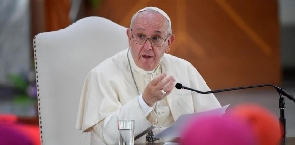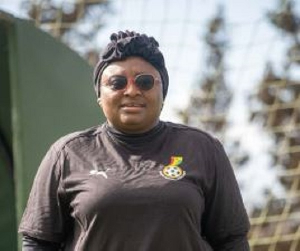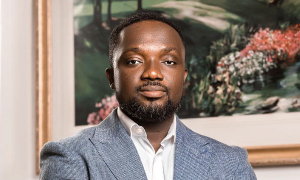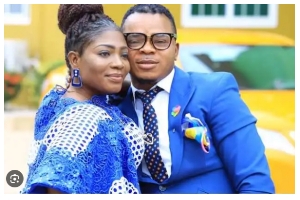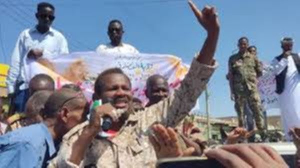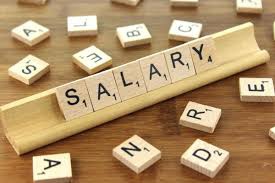In this year of the fiftieth anniversary of Ghana’s independence day, I consider it a political duty, as a Ghanaian, to reflect, counter and dispel some of the contradictory views and half-truths peddled against Osagyefo Kwame Nkrumah, the clear founding father of the new nation he wrestled out of colonized Gold Coast in 1957.
Since the demise of Kwame Nkrumah in 1972, there has been a dichotomy of assessments among Ghanaians regarding his place in the relatively short political history of their country. I arrived at this deduction on the basis of conversations with several Ghanaians over a considerable length of time. I see it as a professional requirement to comment on the contents of the two streams of historical opinions about Nkrumah and Ghana and to share why I think there is a need to come to a closure on the contradictions associated with these differences.
In his political life, since breaking away from the executive of the elitist United Gold Coast Convention, UGCC, in 1949, Kwame Nkrumah was never too far away from controversy, especially in relations with his partisan opponents. In death, Nkrumah remains an enigma; at once beloved as the individual who carried the mantle of decolonization of Africa and hated by those who perceived him as a dictator because he opted for a “One Party State” of governance in Ghana. In addition, Nkrumah’s political opponents and detractors in Ghana accused him of having squandered pre-independence accumulated wealth of the Gold Coast held by the British government; he was seen as being “security conscious;” and was adjudged guilty for the crime of expressing his preference for the socialist system of governance, which made him a hated communist.
This article discusses the bio-political character of Nkrumah, which instructed the nature in which he conducted and directed the affairs of Gold Coast/Ghana as head of government and state. Essentially, the article evaluates the place of Kwame Nkrumah in the 50-year political history of Ghana, within the context of what made him pursue the type of policies he initiated as Leader of Government Business in the Gold Coast Legislature, as Prime Minister and President of Ghana, spanning the period 1951 to Feb. 24, 1966. Nkrumah’s government was overthrown by a section of the Ghana military institution, with the connivance of United States Central Intelligence Agency (CIA), thus ending Ghana’s First Republic prematurely.
According to my evaluation, there were two things that set Kwame Nkrumah apart from the pack of all concerned citizens of Gold Coast/Ghana who even shared his ideals for the country. The two things were Nkrumah’s unique personality and extraordinary passion for decolonization of Africa; a trait he acquired as a student at Achimota College, from Assistant Principal Kwegyir Aggrey and political journalist Nnamdi Azikiwe, in the early 1930s.
The period immediately following the end of the second imperialist war in 1945 was critical with respect to colonized people everywhere demanding their political freedom. The period was pregnant with significant conditions waiting for independence and political freedom to be delivered to the people of the Gold Coast.
Who was it, among the leading Gold Coast nationalists, after 1945, to push the demand for independence to its logical and profitable conclusion? Some leading members of the dominant nationalist organization, the United Gold Coast Convention, UGCC, settled for demanding independence from the British “in the shortest possible time.”
Kwame Nkrumah, a member of the UGCC executive, differed with the other leaders in their approach towards the struggle for independence.
Nkrumah, at the plodding of irate youth in the Gold Coast, told the British government in 1949, “We want self-government now.”
Nkrumah held on to his conviction for demanding immediate independence for the Gold Coast, which materialized after eight years of concentrated struggle and political maneuvering. In short, Kwame Nkrumah emerged as the prime motif force that propelled the movement for independence for the Gold Coast towards a successful end.
Rather than see Nkrumah as a dictator, I want to argue the alternative that Nkrumah’s personality was one that could be described as absolutist. An absolutist abhors controls or restrictions of any type. By extension, an absolutist ruler eschews controls on power and shuns interference in the process of achieving set goals.
It is important to point out that absolutism does not equate dictatorship. Nkrumah did not hold the gun to anybody’s head to acquire power; he sought it through the ballot box. But once he acquired power he held fast to it and did not treat kindly any impediment in his way towards achieving set goals.
Whether absolutist behavior is good or bad could be a subjective call. The fact remains that absolute personalities exhibit extraordinary propensity to execute set goals; and Nkrumah did, with a passion. If Nkrumah was a dictator then all his anti-colonial contemporaries were the same because none of them had the mandate to tell the world that the people of the Gold Coast wanted independence from colonial rule.
In short, J. B. Danquah, Obetsebi Lamptey, Pa Grant, Ako Adjei, among others who also advocated for decolonization of the Gold Coast were dictators; nobody had elected them to represent the people.
To those that keep repeating the allegation that Nkrumah’s government, with him as Prime Minister after 1957, squandered a large amount of money that the British colonial government had stacked in a vault for the colonial subjects, I ask the following questions: If the British had all that money saved for the people of the Gold Coast, before independence, why did they leave us with just one university; why did young boys and girls of my generation have to travel long distances just to have the benefit of secondary school education? Again, I want to ask why were the British sitting on our cash when the railway system in the Gold Coast was not extended to the northern part of the country? I want to ask also why my mother had to walk over 50 miles, one way and return, carrying a load of salt on her head; what happened to road transportation, as was the case in Britain?
I would not have done my duty if I do not ask why the people of the Gold Coast experienced extensive and persistent infectious diseases when the colonial administration sat on their money? Does that make sense to anybody?
Those who say Nkrumah squandered Ghana’s money usually cite his activities associated with Africa’s decolonization as a factor. Does any well-grounded Ghanaian believe that independent Ghana would have survived the onslaught of neocolonialism in a wide ocean of dependent African colonies? For me, Nkrumah’s conviction that “The independence of Ghana is meaningless unless it is linked up with the total liberation of Africa,” remains very clear and apropos.
Ghanaians who accuse Nkrumah of squandering their money are the same that tend to charge him with dictatorship. Before becoming Prime Minister after independence, Nkrumah was the Leader of Government Business in the Gold Coast Legislative Assembly and when Ghana opted for a republican status in 1960, he became the president. Each step of the way, Nkrumah did not impose himself on the people of Gold Coast or Ghana; he won elections.
It was through the constitutional process also that Nkrumah positioned Ghana as a “One Party State,” an approach he considered suitable for his preferred socialist mode of production for a new post-colonial African society.
One has to be careful not to equate a one party state with dictatorship. The Constitution of Ghana in 1961 did not enjoin every Ghanaian to be a member of the CPP. There was a parliament in place to make laws. Nkrumah appeared before parliament on a regular basis, as the law required, to explain his policy decisions and actions. Nkrumah did not rule by decrees.
Those who opposed Nkrumah’s idea of a one party state in a socialist political economy accused him of the political crime of allegedly being a communist. He was not. It is doubtful if those who have a problem with communism could recognize one if it was left at their doorstep. Communism is not an individualist phenomenon, this means to charge a single person as communist throws logic out of the window.
Nkrumah’s approach to governance was tantamount to utilizing the absolute power of the state to harness national resources for the benefit of all citizens through the provision of social programs.
Since the inception of the CPP in 1949, opposition forces in the Gold Coast/Ghana never relented in violent pursuit of the political power Nkrumah had coveted through the ballot box.
Opposition forces throughout the political career of Nkrumah in Ghana were very active in using all forms of attack, including violence, against the person of Nkrumah and his supporters. In that instance, one has to agree with a writer who characterized Nkrumah as “security conscious,” except that the writer in question seemed to apply the characterization connotatively. It is fair for one to consider that the security conscious actions Nkrumah took were consistent with the tendency for all living beings to protect themselves against enemy attack.
For me, the way I see the problem some Ghanaians have with the place of Kwame Nkrumah in the history of our country is that they have tended to be sour losers. My advice to Nkrumah bashers comes from the Ghanaian metaphor that after failing to catch up with the antelope, one has to be sincere enough to praise its speed and swiftness! Fifty years after leading the charge towards attaining political independence, it must be time for Ghanaians to accord Osagyefo Kwame Nkrumah his relevant place in the history of the country.
-end-







